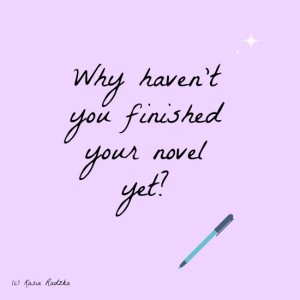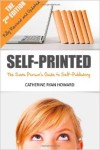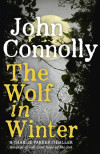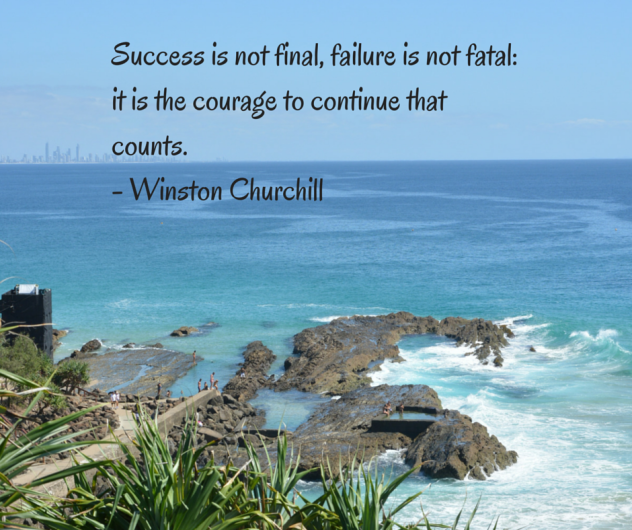
by Kasia | May 4, 2015 | Writing

I’d love to write a novel. I’ve heard that so many times. Heck, I’ve been saying it for twenty years. I’ve written several, most have ended up in the trash, disposed of before prying eyes could criticise. My own criticism sufficed to ensure that my dream of being a published author were doomed from the start.
The act of writing is a simple one. You sit down in front of pen and paper or laptop. I like it both ways — pen and paper for brainstorming and the laptop for getting the writing done — and you write. One word after another, then a sentence, a paragraph, a page, a chapter, until you type the end.
Simple enough but so difficult at the same time.
I said it was simple, but it sure as hell isn’t easy.
The best advice for getting the novel done, ‘Arse in chair and write,’ I think Stephen King may have said it, it’s been repeated by many since. It’s the truth though. Excuses are easy, we all have them. From full-time jobs to adventurous kids, a frenzied social life to a demanding family who don’t understand the concept that daydreaming of fictional characters plotting assassinations is actually a job or at least you hope it will become one when you sell a few hundred thousand books.
It took me three plus years to finish Lethal Disposal. I could probably keep working on it. The problem is when is it good enough? When is a novel actually finished? There are so many what ifs, so many variables that can be altered that before you know you’ve changed the entire story multiple times. Lethal Disposal changed twice. If you find an inconsistency, I apologise in advance, but there shouldn’t be any.
Typing The End is a liberating experience. Not the The End once you’ve completed the first draft but The End once the book has gone through your own edit several times and then again by a professional editor, and then finally once more by you. By this stage you’ve read it so many times that you are completely and utterly over it. You know it inside out and cannot spot the little errors that still crowd your manuscript. A proofreader before you click publish is a wise move.
You’re done. Your baby goes out into the world. Then you start again. Characters take a life of their own, plots evolve in your mind at the most inconvenient times of day, you reach for your notebook, jot down notes quickly in hope of not forgetting. It’s so easy to forget. Keep that notebook close by, always.
Why haven’t you written yours? No time? Bullshit. We all have the same twenty-four hours in a day. We just choose to use them differently. Most of Lethal Disposal was written on the train ride to and from work, in between catching up on the latest episodes of Scandal, The Vampire Diaries, and Revenge, and trying to study financial planning.
It got done. I made the time. Now it is up to you to make the time in your schedule. Finish the book. It doesn’t have to be perfect. Perfection is overrated anyway. Finish it, let others read it. You can improve with the second one, and write an even better third one. But don’t wait until it’s too late.
Many people dream of writing a novel. Few actually go out and do it, finish it and publish it. Nike says it best, ‘Just do it.”
So, why haven’t you finished your novel yet?

by Kasia | Apr 22, 2015 | Writing
Firing up the muse during a mid-week getaway. As a writer, even when I’m supposed to be relaxing and taking time out, not writing is impossible. Do you ever have that problem?


by Kasia | Apr 19, 2015 | Reading, Writing
I love reading but lately I haven’t been doing enough of it. It’s not that I don’t have time, it’s that I haven’t been making enough time for it. Once upon a time I’d get through several books each week, now I’m lucky to get through a few month. But slowly that’s changing. Here are a few books currently on my bookshelf:
 Self-Printed: The Sane Person’s Guide to Self Publishing by Catherine R Howard
Self-Printed: The Sane Person’s Guide to Self Publishing by Catherine R Howard
I’m actually re-reading this one for information, motivation and a kick in the butt. There’s so much information about self-publishing, including the marketing, the business, and failure and success that a once through read is not enough. The book has everything you need to know, it’s like having someone hold your hand throughout the entire process. Love it. Thank you Catherine Ryan Howard for writing this one. It’s a must read for any serious writer looking into self-publishing, or self-printing their book(s). * * * * *
 20 Must Ask Questions For Every Property Investor by Margaret Lomas
20 Must Ask Questions For Every Property Investor by Margaret Lomas
I could talk personal finance and that includes property investing all day long and not get bored. So I started a personal finance blog. I’ve been educating myself on investing for over a decade now. Got my feet wet a while back and am looking forward to doing so more. I like Lomas’s strategy and the information she packs in her books. There’s no ‘get rich quick gimmick’ with her, instead it’s all about creating a portfolio of quality properties that will provide a combination of growth and cash-flow to help you reach your financial aspirations. Since we’re looking at purchasing an investment property, I though it was worth re-reading this one again. If you’re looking for an investment property, those 20 questions will help you pick a winner. * * * *
 Again by Tess Gerritsen
Again by Tess Gerritsen
Rizzoli and Isle’s make a great team and Tess Gerritsen’s books just keep getting better and better. Set partially in Bostwana and partially in Boston, from hunters in the wild to those in your own backyard, Gerritsen keeps you guessing till the very end. I don’t think I’ve read a book by Tess Gerritsen that I haven’t enjoyed. [ 5 * * * * * ]
 The Wolf in Winter by John Connolly
The Wolf in Winter by John Connolly
John Connolly has a talent for grabbing his readers and keeping them turning the pages when they know they should turn out the light and go to sleep. I almost missed my station reading this in the train on my way home from work. The Wolf in Winter does not disappoint. A town called Prosperous has a deep dark secret, and when a girl goes missing her homeless father commits suicide, Charlie Parker, a private detective, is drawn in to investigate what really lies beneath the town. I enjoy reading Connolly however sometimes I find that his backstory and descriptions are lengthy, they do seem to work effectively in his stories. * * * * *
by Kasia | Apr 18, 2015 | Writing
Once upon a time, I can’t remember when but it would have been more than a decade ago, I read that a writer should write about a million words before attempting to get published. Yes, one million words. Sounds like a lot but if you break it down it is only 2800 words per day for one year.
Some might call it a writer’s apprenticeship. Have you ever come across this?
I have to wonder, how many words have I written? I’ve thrown out about half a dozen manuscripts over the past fifteen years, I’ve written on numerous blogs, plus the free writing, journals, article and much more. There’s bound to be a few million there.
Now that I’m older and wiser, I think it’s mostly a load of baloney. While I don’t think you should publish the first thing you write, I don’t think you have to wait till you’ve written a certain amount of words.
A writer’s apprenticeship never ends. If we want to continually become better writers we never stop learning about the craft, we constantly work on expanding our vocabulary, we play around with sentence structure, we are never-ending apprentices in a growing community.
That means, you hit publish when you’re ready.
I recently read an interview in Writer’s Digest (May/June 2015) with Susan Mallery, where she says it’s as important to study the craft of writing once you’re published as it was when you were dreaming of being published, she says, “I’m a huge believer in studying craft, and still study craft.” Susan Mallery has written over 150 books. I think it might be worth listening to her advice if you want to be a great writer, and more importantly a writer that readers love to read.
So whether you’re on your first book, your twentieth or your hundredth, there’s likely something that you can still learn. It’s your responsibility as a writer to continue learning, to persevere with the writer’s apprenticeship for as long as you wish to continue writing.
What do you think? Does a writer’s apprenticeship ever end?

by Kasia | Apr 4, 2015 | Self Promotion

Failure is a fact of life. It’s inevitable, unavoidable, even obligatory. Even the best have failed, probably more than once. Failure is a part of success. The more we fail the closer we are to succeeding. Even the overnight success didn’t get there overnight.
Success is a process. It involves hard work, sacrifice and persistence. Whether you fail or succeed depends mostly on you. As someone wiser than I once said, ‘Success is 1% luck and 99% perspiration’.
Are you perspiring?
If not, it’s time to break a sweat.







